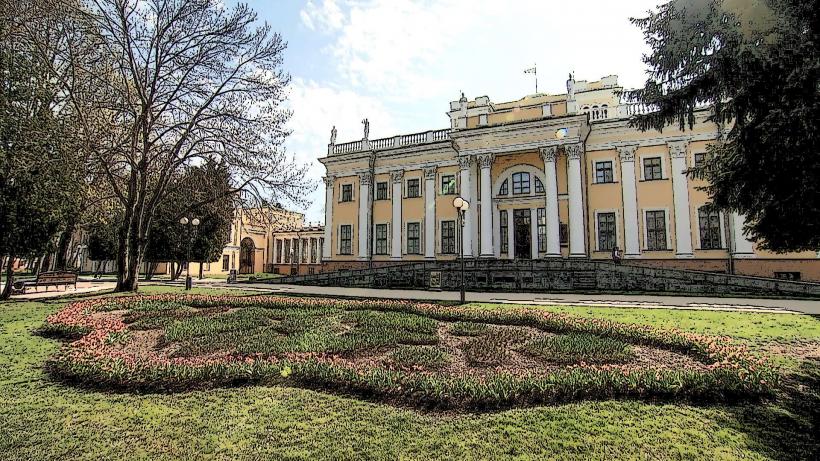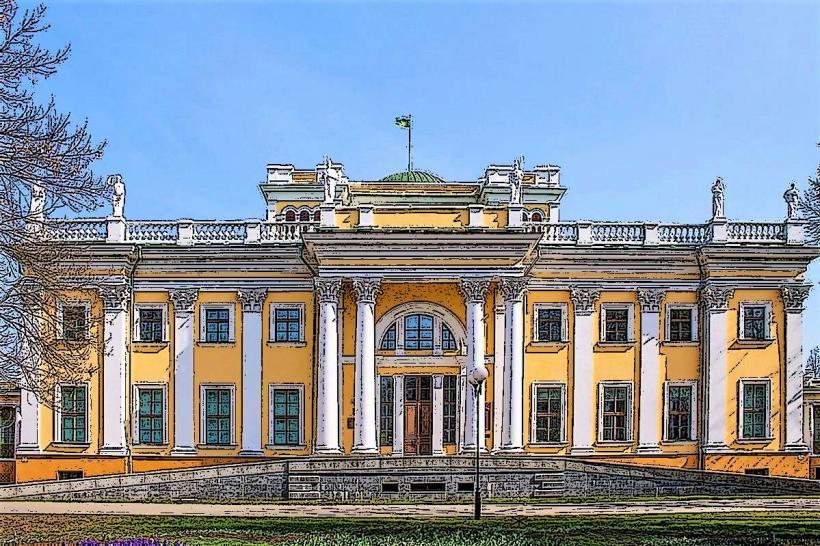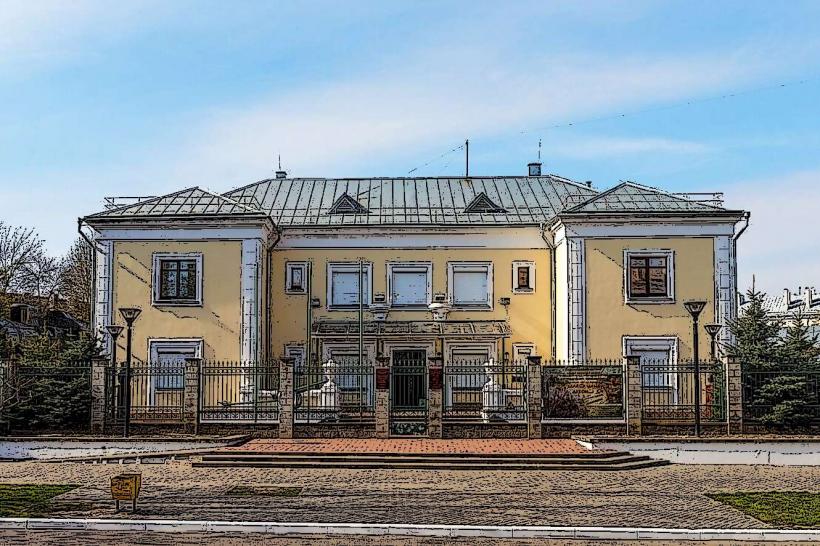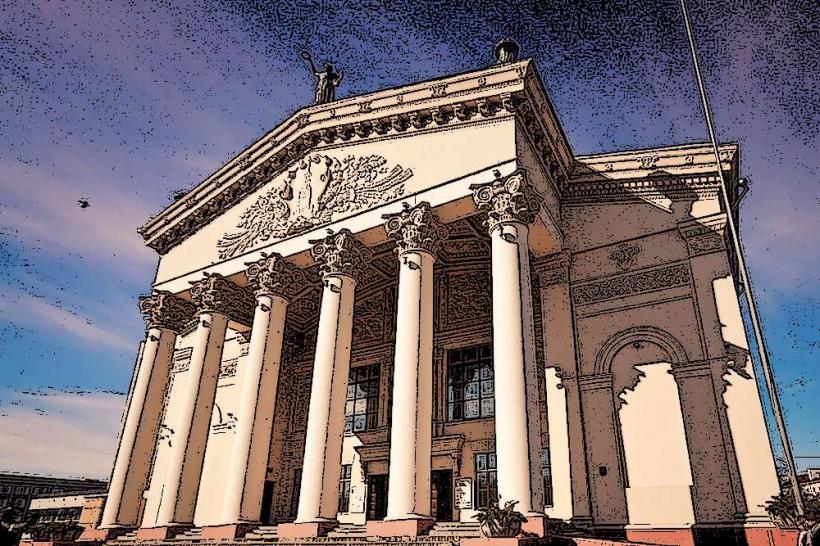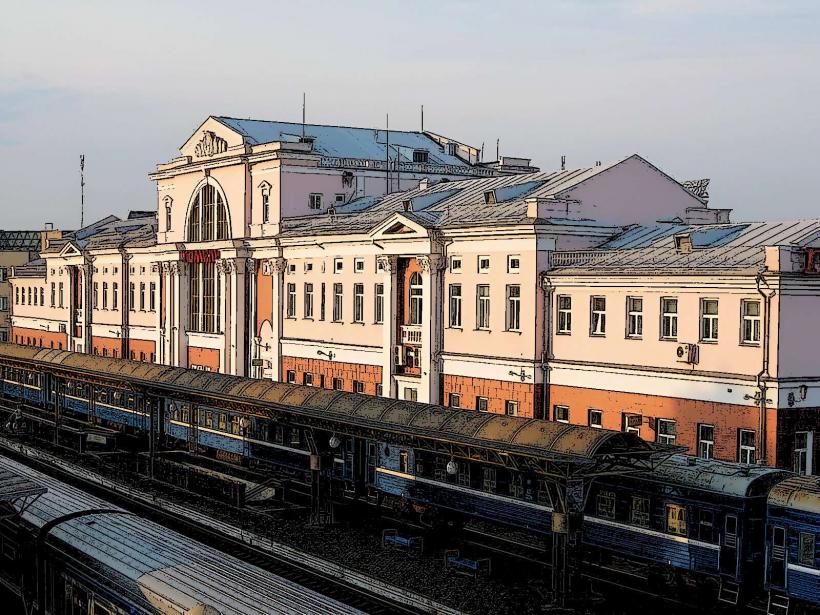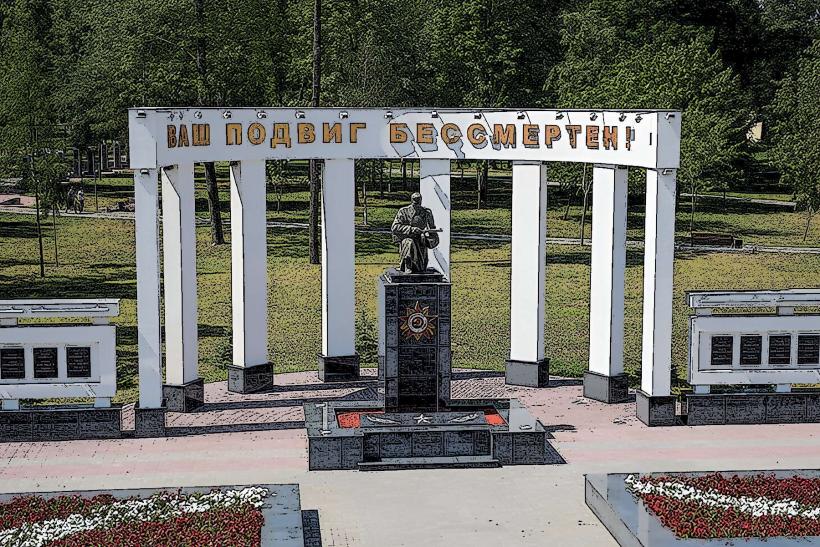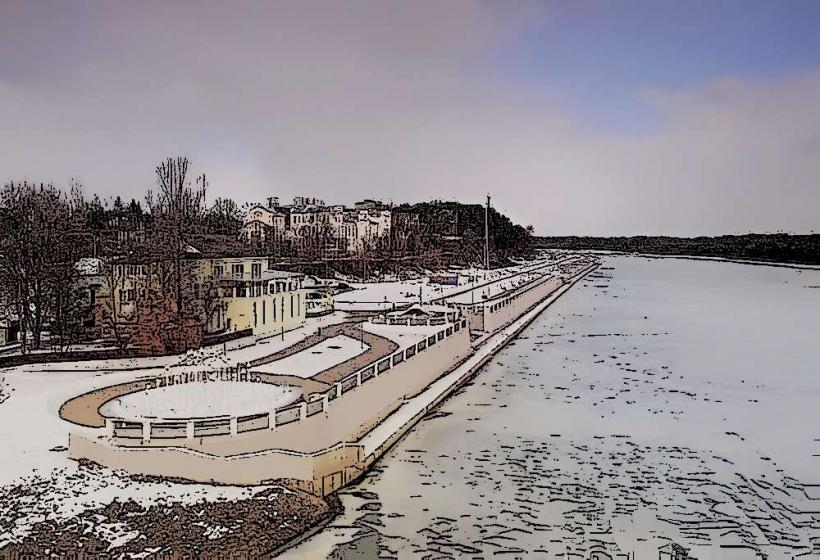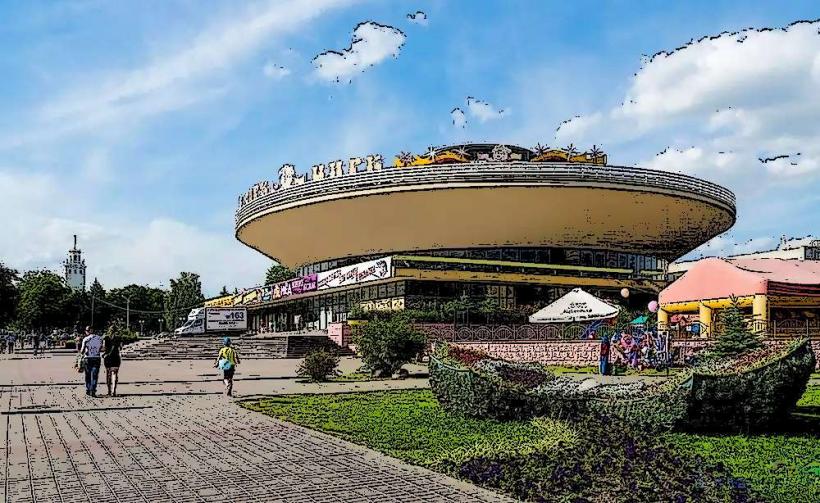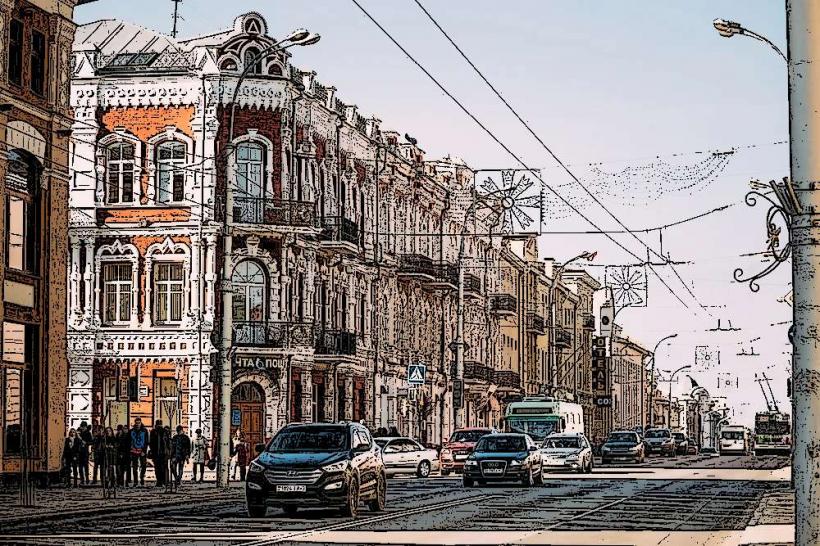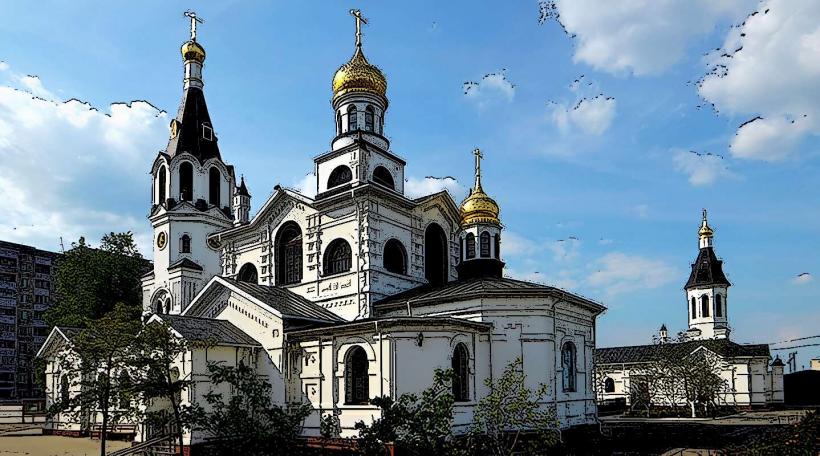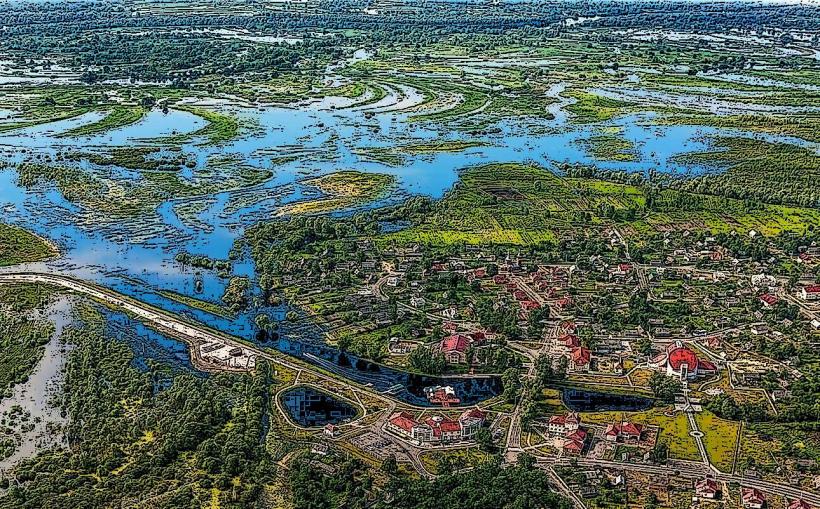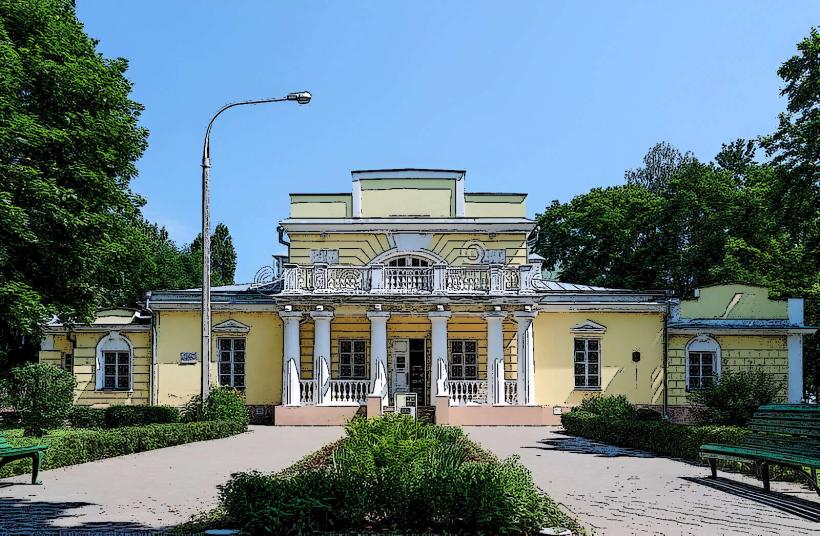Information
Landmark: Saint Peter and Paul CathedralCity: Gomel
Country: Belarus
Continent: Europe
The Saint Peter and Paul Cathedral in Gomel, Belarus, is one of the city’s most prominent and historically significant landmarks. It stands as a masterpiece of Baroque architecture and holds a central place in the spiritual and cultural life of the region.
1. Historical Background
The construction of the Saint Peter and Paul Cathedral began in 1777 and was completed in 1792. It was commissioned by the local nobility and the ruling authorities of the time, as part of a broader effort to create a significant religious presence in the growing city of Gomel. The cathedral was initially intended to serve as the main Orthodox church in the region, reflecting the religious and cultural traditions of the Russian Empire.
Over the years, the cathedral has undergone several renovations and reconstructions. After suffering damage during various periods, particularly during World War II, it was restored to preserve its historical and architectural significance.
2. Architectural Style
The Saint Peter and Paul Cathedral is an outstanding example of Baroque architecture. The design features elements typical of Russian Baroque, with influences from European architectural styles, particularly Italian Baroque. The cathedral’s facade is richly decorated, with ornate detailing and a symmetrical layout, offering a sense of grandeur and elegance.
Key Features:
- Facade: The cathedral’s main facade features a central portico with a prominent pediment and decorative columns. The entrance is flanked by statues of saints, and intricate moldings adorn the walls. The design gives the building a sense of classical order and sophistication.
- Dome: The cathedral is topped by a grand dome, a signature feature of Baroque churches. The dome, along with the cathedral's towers, contributes to its imposing presence in the city’s skyline.
- Bell Towers: Two tall bell towers flank the main entrance of the cathedral, enhancing the symmetrical design and adding to the grandeur of the building.
- Interior: Inside, the cathedral boasts richly decorated interiors, with elaborate frescoes, icons, and a series of decorative elements that reflect the style of the time. The iconostasis, the screen separating the altar from the rest of the church, is intricately carved and adorned with religious icons.
3. Religious and Cultural Importance
As the center of Orthodox Christianity in Gomel, the Saint Peter and Paul Cathedral holds great spiritual significance. It has served as the main church for both the local community and for visiting dignitaries throughout its history.
The cathedral is also an important cultural institution. It is not only a place of worship but also a symbol of the city’s historical development and religious heritage. The cathedral has witnessed key events in the region’s history, including the changes in the Russian Empire and later the Soviet era, which had significant effects on religious institutions.
4. Renovations and Restoration
The cathedral underwent several renovations over the centuries. One of the most significant restoration efforts occurred after the cathedral was damaged during World War II. The church was closed for a time during the Soviet period, when religious institutions were suppressed, but it was later restored and reopened to the public.
In recent decades, efforts have been made to preserve the cathedral’s architectural integrity, including the restoration of its frescoes and other interior details. These efforts have helped maintain the cathedral as one of the most important cultural and religious sites in Gomel.
5. Modern-Day Significance
Today, the Saint Peter and Paul Cathedral continues to serve as an active place of worship and a major historical and tourist attraction. It hosts regular services and special religious events, drawing worshippers from around the region. The cathedral also attracts visitors interested in its historical, architectural, and artistic significance.
It is often included in tours of Gomel’s cultural and architectural landmarks, showcasing the region’s deep-rooted Orthodox Christian heritage and architectural prowess. The cathedral’s position on the banks of the Sozh River adds to its scenic beauty, making it a must-visit location for tourists and pilgrims alike.
6. Conclusion
The Saint Peter and Paul Cathedral is an iconic symbol of Gomel’s rich religious and architectural heritage. Its Baroque design, historical importance, and role in the local religious community make it a cornerstone of the city’s cultural identity. Whether as a place of worship, a historical monument, or a cultural landmark, the cathedral remains an enduring testament to Gomel’s past and its enduring spiritual traditions.

